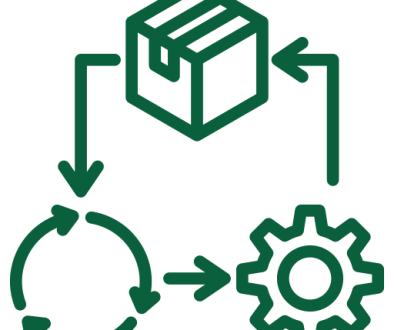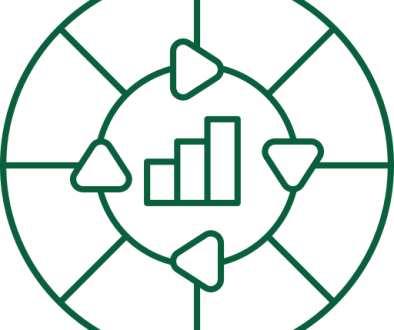
Defining Sustainability in Business
Defining Sustainability in business and why measuring it is important.
What is the definition of Sustainability?
Sustainability is defined as development that meets the needs of the present without compromising the ability of future generations to meet their own needs.
Sustainability has become an important topic in business with most organisations keen to be more sustainable and to be seen to be more sustainable.
Benefits of Measuring Sustainability
Measuring sustainability performance gives businesses clear insights into their impact and helps drive meaningful progress. Here are some key benefits:
- Enhanced accountability – Regular assessment ensures a company stays on track with its sustainability commitments, building trust with stakeholders and preventing greenwashing.
- Regulatory compliance – Many industries face increasing environmental regulations, and tracking sustainability metrics helps companies stay compliant and avoid fines.
- Operational efficiency – Data-driven sustainability strategies uncover opportunities to reduce waste, optimise energy use, and cut costs without compromising performance.
- Competitive advantage – Companies with strong sustainability performance often stand out in the market, attracting investors, partners, and customers who prioritise ethical business practices.
- Innovation and growth – Measuring impact encourages businesses to adopt cleaner technologies and sustainable solutions, driving innovation and long-term success.
- Talent retention and attraction – Employees increasingly seek workplaces committed to sustainability, and transparent performance measurement fosters a positive, purpose-driven company culture.
A Tailored Approach to Sustainability
Thousands of organisations have embraced sustainability strategies as both a means of enhancing productivity, and as a powerful driver of competitive advantage.
At its core, organisational sustainability is rooted in longevity and the preservation of fundamental principles and purpose. However, sustainability is not a one-size-fits-all concept. For each organisation, the definition and execution of sustainable practices will vary. The key lies in developing a strategy that is both relevant and impactful. By addressing environmental, social, and ethical challenges effectively whilst aligning with the organisation’s core values.
Why Sustainability is important
Sustainability is important for the planet because it helps maintain the delicate balance of ecosystems, ensuring that future generations inherit a liveable world. Here’s why it matters:
- Environmental protection: Sustainable practices reduce pollution, conserve natural resources, and protect biodiversity, keeping ecosystems healthy.
- Climate stability: Cutting carbon emissions and using renewable energy sources helps to mitigate climate change, reducing extreme weather events and global warming.
- Resource conservation: The planet has finite resources, and sustainable practices ensures we don’t exhaust essentials like clean water, fertile soil, and forests.
- Healthy communities: Clean air, water, and food sources contribute to human well-being, preventing health crises linked to pollution and environmental degradation.
- Wildlife preservation: Many species are endangered due to habitat destruction. Sustainable production helps protect habitats and ensure biodiversity thrives.
By making sustainable choices, we help keep the planet liveable for all life forms.
Sustainability Throughout the Supply Chain
The social dimension of sustainability is just as vital as environmental and economic factors. Businesses play a crucial role in safeguarding the well-being of people and communities across their supply chain. Businesses need to ensure fair treatment, ethical labour practices, and equitable opportunities.
Beyond preventing exploitation, companies can actively contribute to positive change by designing products and services that foster social good throughout their lifecycle. Whether by enhancing accessibility, promoting ethical sourcing, or supporting community development. A truly sustainable business both reduces harm and strives to create lasting benefits for society.
Sustainability in different sectors
Defence Industry
Sustainability is an ever-growing priority within the defence sector, shaping procurement strategies and operational frameworks. The UK armed forces must ensure that ethical and environmental considerations are embedded at every stage of equipment acquisition and deployment.
With commitments to Net Zero now firmly integrated into procurement strategies, the defence industry is taking decisive steps toward sustainability. By prioritising sustainable practices, the sector is both reducing its environmental footprint and enhancing resilience, operational efficiency, and long-term effectiveness. This ensures that defence capabilities align with the evolving demands of a sustainable future.
Manufacturing Industry
Sustainability is a critical priority within the industrial manufacturing sector, given its inherently energy- and resource-intensive nature. Businesses can address this challenge by developing resource-efficient infrastructure and technologies, alongside optimising processes that drive a shift toward a more circular economy.
Consumer facing industries
Consumer-focussed industries face distinct challenges. Brand perception and stakeholder engagement are key. Sustainability efforts must be transparent and communicated effectively to build trust and credibility. It’s important for all businesses that their sustainability efforts are meaningful and avoid green-washing.
Considering the end-of-life impact of products is a crucial concern, requiring businesses to implement responsible disposal and recycling solutions that mitigate environmental harm and reinforce long-term sustainability commitments.
How to measure sustainability
There are lots of potential Key Performance Indicators when it comes to measuring sustainability in your organisation. Here are some of the most important ones to consider:
- Carbon Footprint
- Energy Consumption
- Product Recycling Rate
- Supplier Environmental Sustainability Index
- Supply Chain Miles
- Water Footprint
- Waste Reduction Rate
- Waste Recycling Rate
- Social Impact
Examples of sustainability KPIs
Supply Chain Miles
Measures the total distance goods travel from production to final delivery. This metric helps businesses assess their carbon footprint, logistics efficiency, and cost-effectiveness.
- Total Distance Travelled – Tracks the miles covered by shipments across the supply chain.
- Emissions per Mile – Measures the carbon footprint associated with transportation.
- Fuel Efficiency – Evaluates fuel consumption relative to distance travelled.
- Percentage of Local Sourcing – Assesses how much of the supply chain relies on nearby suppliers to reduce transport miles.
- Cost per Mile – Helps businesses optimise transportation expenses.
Energy Consumption
This KPI evaluates a company’s total energy use, both in terms of absolute consumption and efficiency improvements.
- Businesses monitor renewable vs. non-renewable energy sources used in operations.
- Tracking energy intensity (energy used per unit of output) helps measure efficiency gains over time.
- Implementation of smart meters, IoT sensors, and AI-driven analytics allows for real-time monitoring and optimisation of energy use.
Water Usage
Water consumption is monitored to ensure responsible usage, conservation, and reduction of waste.
- Companies measure total water withdrawal, use in production processes, and wastewater discharge.
- Tracking water recycling rates and improvements in water efficiency helps reduce strain on natural resources.
- Certifications such as Alliance for Water Stewardship (AWS) help businesses align with global best practices.
Waste Reduction & Recycling Rates
Businesses assess how effectively they manage waste, ensuring materials are reused, recycled, or responsibly disposed of.
- Tracking percentage of waste diverted from landfill versus total waste produced.
- Monitoring product lifecycle impact, focusing on materials used, recyclability, and end-of-life waste management.
- Initiatives such as zero-waste policies, closed-loop production, and circular economy models help companies minimise waste footprint.
The communication of KPIs is vital to strong sustainability strategy. The use of Corporate Social Responsibility (CSR) reporting or Environmental, Social and Governance (ESG) reporting are the most common ways for organisations to communicate their sustainability performance to relevant stakeholders and investors.
Tracking sustainability is about continuous improvement and adapting to the evolving business landscape.
When sustainability strategy is integrated and communicated well, there are tangible benefits for your organisation, customers, stakeholders and the environment. Cala Sustain can help you with:


